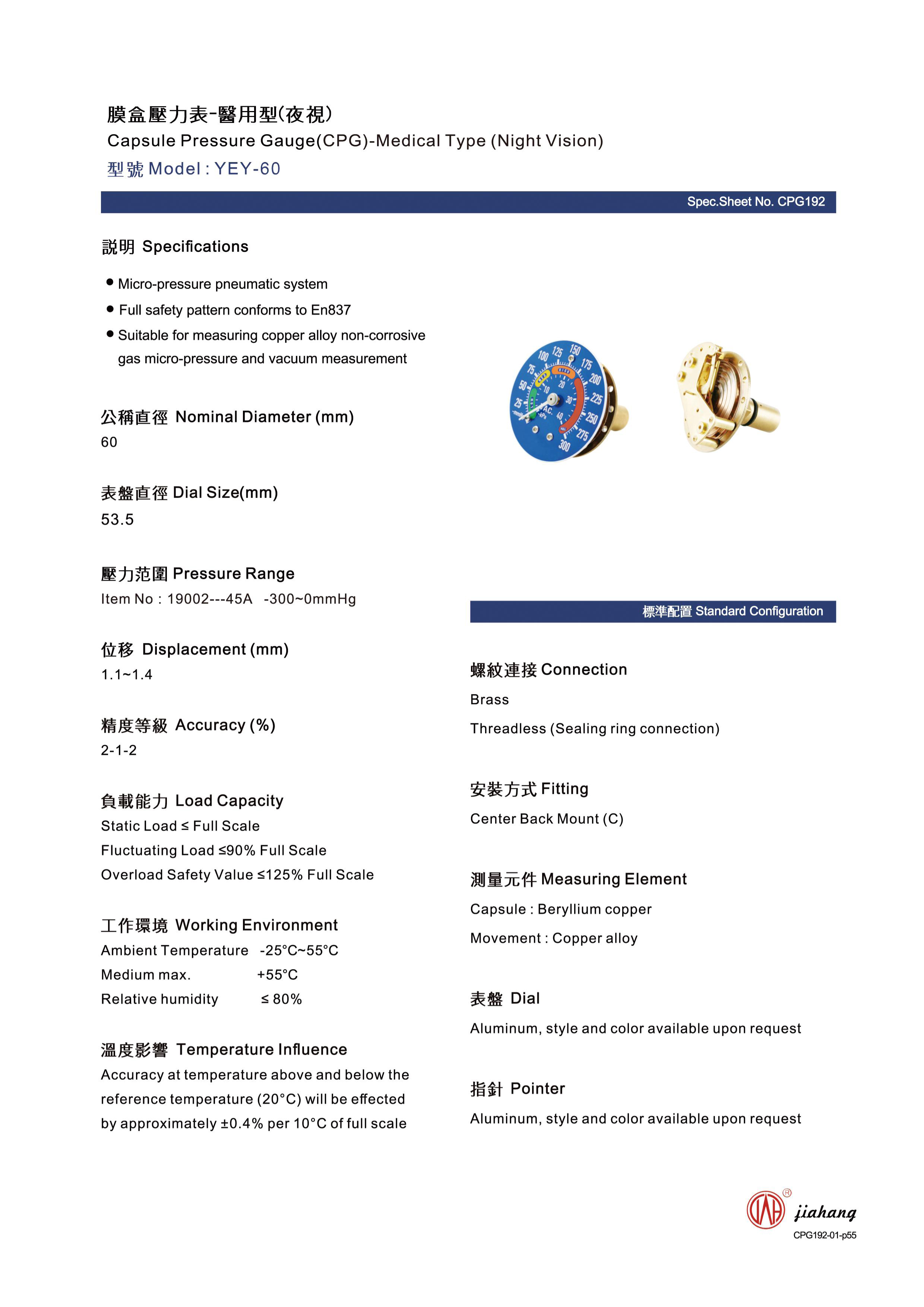
Dec . 10, 2024 05:02 Back to list
Supplier of Diaphragm Pressure Gauge Components and Accessories for Optimal Performance
Understanding the Components of Diaphragm Pressure Gauges and Finding Reliable Suppliers
Diaphragm pressure gauges are essential instruments used to measure pressure in various industrial applications. They operate based on a simple yet effective principle the deformation of a diaphragm is directly proportional to the pressure applied to it. The design and construction of these gauges involve several critical components that contribute to their performance, accuracy, and reliability. Understanding these parts is crucial when sourcing diaphragm pressure gauges from suppliers.
Key Components of Diaphragm Pressure Gauges
1. Diaphragm The heart of the pressure gauge, the diaphragm is typically made from materials such as stainless steel, brass, or various elastomers. Its flexibility allows it to respond to pressure changes. The material chosen affects the gauge's durability and compatibility with different media.
2. Pressure Connection This part connects the pressure gauge to the system being measured. It must be robust and leak-proof to ensure accurate readings and long service life. Common types of pressure connections include threaded, flanged, and welded.
3. Movement Mechanism The movement system converts the diaphragm's mechanical displacement into a rotational or linear motion that can be displayed on the gauge. This mechanism often includes gears and linkages, designed to translate the diaphragm movement into a readable format.
4. Dial and Pointer The dial is the face of the pressure gauge, displaying the pressure measurement. The pointer moves across the dial to indicate the pressure level. Dials can vary in size and scale, depending on the intended application and required pressure range.
5. Case The protective casing houses the internal components of the pressure gauge. It is made from durable materials such as stainless steel or plastic to withstand harsh environments. The case also often features a transparent cover, allowing users to read the dial easily while providing protection from contaminants.
6. Zero Adjustment Some diaphragm pressure gauges come equipped with a zero adjustment feature, allowing users to calibrate the gauge for more accurate readings. This is particularly important in applications where precision is critical.
7. Snubber In high-pressure applications, a snubber can be installed to reduce the effects of pressure spikes that may damage the diaphragm. This device helps maintain the gauge's integrity and accuracy over time.
parts of diaphragm pressure gauge supplier

Sourcing Diaphragm Pressure Gauge Suppliers
When looking for suppliers of diaphragm pressure gauges, it is important to consider several factors to ensure you choose a reliable partner.
1. Experience and Reputation Look for suppliers with a proven track record in the industry. Established companies are more likely to offer quality products and reliable customer service.
2. Product Range A supplier that offers a variety of diaphragm pressure gauges can meet diverse application needs, whether you require high accuracy, corrosive fluid compatibility, or specific pressure ranges.
3. Quality Assurance Check if the supplier adheres to industry standards and regulations. Certifications, like ISO 9001, can indicate a commitment to quality and continuous improvement.
4. Customization Options Depending on your application, you may need customized solutions. A good supplier should be willing to discuss your specific needs and offer tailored products.
5. Technical Support and Service Choose a supplier that provides excellent technical support and after-sales service. This is crucial for troubleshooting and ensuring optimal performance of the instruments.
6. Pricing While price shouldn’t be the only factor, it’s important to find a supplier that offers competitive rates without compromising on quality. Be wary of deals that seem too good to be true, as they may reflect lower quality products.
In conclusion, the effectiveness of diaphragm pressure gauges relies heavily on their components and construction. Understanding these parts helps users make informed decisions when selecting gauges for their applications. Moreover, finding a reputable supplier that provides high-quality products, customization, and excellent service is vital for ensuring long-term satisfaction and operational efficiency. Whether you are in manufacturing, food processing, or any other industry requiring pressure measurement, investing in a reliable diaphragm pressure gauge and a trusted supplier is invaluable.
-
High-Quality Pressure Gauge on Fire Extinguisher - Reliable Water Fire Extinguisher Pressure Gauge Suppliers & Exporters
NewsJul.08,2025
-
High-Quality Water Pressure Differential and Gauge Kit Reliable Manufacturers & Competitive Quotes
NewsJul.08,2025
-
High-Precision Digital Diaphragm Pressure Gauge – Reliable Manufacturer & Competitive Quotes
NewsJul.07,2025
-
Wholesale Diaphragm Pressure Gauge Supplier - Premium Quality & Competitive Price
NewsJul.07,2025
-
Digital Diaphragm Pressure Gauge Reliable & Precise Measurement Top Manufacturers Quotes
NewsJul.06,2025
-
High Accuracy Piston Type Differential Pressure Gauge - Reliable Manufacturers & Competitive Quotes
NewsJul.06,2025
